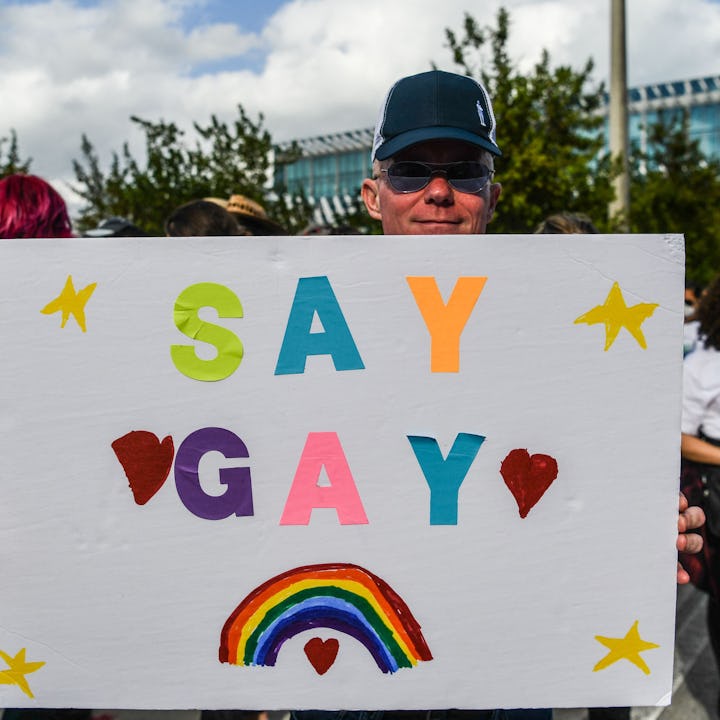Florida Governor Ron DeSantis Just Signed The ‘Don’t Say Gay’ Bill Into Law
The controversial law and its vague language could adversely affect all kids in Florida.

On Monday, March 28, Florida Governor Ron DeSantis signed the “Don’t Say Gay,” bill, aka House Bill 1557, into law, banning any type of discussion concerning sexual or gender identity in the classroom from kindergarten through third grade. The bill has drawn criticism from LGBTQ rights advocates, saying the law stigmatizes and erases LGBTQ students. It’s also drawn criticism from those who say many of the bill’s provisions will hurt all Florida children, especially any who might be suffering from abuse or neglect at home.
First of all, the bill houses a “parent notification” requirement, which says that parents must be notified if a child seeks counseling in school. This comes as Florida is in the middle of revising its school counseling standards, which currently affirm gender and sexual diversity, according to New York Times.
“The intent of the bill may be to influence the revision to remove this type of affirming language and strengthen parents’ rights,” wrote Dana Goldstein, a NYT reporter who did an in-depth reading and analysis of the bill’s language.
This is something that critics of the bill have pointed out will negatively impact not just LGBTQ+ students, but any student who might be reaching out about a potentially unsafe home life. Yes, the bill includes language that allows staff to skip parental notification if there is a potential of “abuse, abandonment, or neglect,” but it is unclear how a child navigating their sexuality in a potentially unsafe home meshes with this stipulation.
Goldstein also noted that while the bill’s language suggests this type of communication is banned just for younger children, that is not the case.
“Instruction on gender and sexuality would be constrained in all grades,” as lines 97-101 of the bill state, “Classroom instruction by school personnel or third parties on sexual orientation or gender identity may not occur in kindergarten through grade 3 or in a manner that is not age appropriate or developmentally appropriate for students in accordance with state standards.”
The vague language of “age appropriate” gives educators wiggle room to ban any type of discussion if it is something they subjectively deem inappropriate for a certain age.
Another moment of vague language? The bill states that LGBTQ+ issues can’t be “discussed” in any way in the classroom — an issue that could help book banners or prevent a kid with gay parents from even mentioning their two moms or dads.
Two other concerning aspects of the bill: it gives parents the right to opt their kids out of a school’s health and wellness services (which could put abused or neglected kids at risk) and it gives parents the right to sue schools for not following the vague bill (with all legal costs landing on school districts).
The bill is set to go into effect on July 1, 2022.